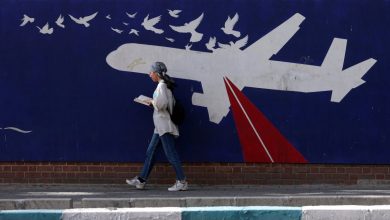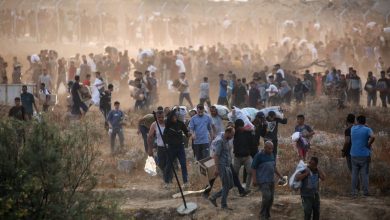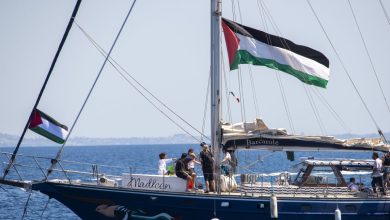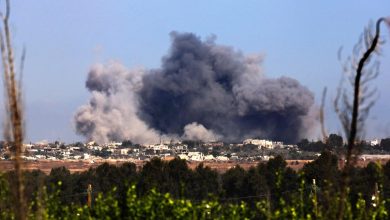Palestinians mark Eid at Al-Aqsa in defiance of war, occupation
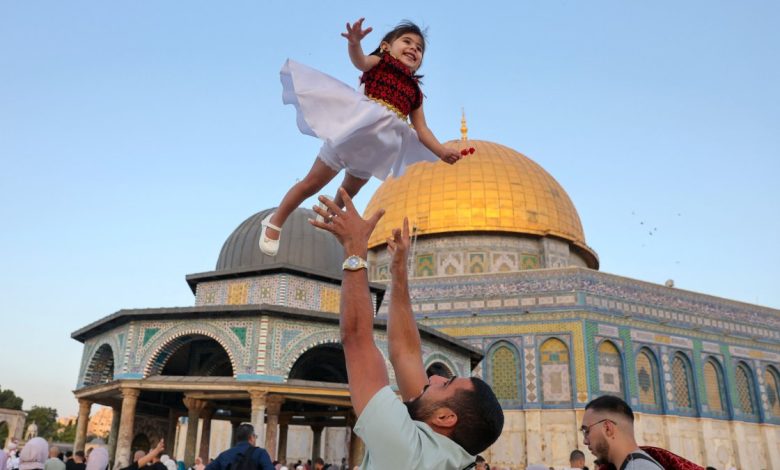
In a powerful display of faith and defiance, nearly 80,000 Palestinians converged on the Al-Aqsa Mosque in occupied East Jerusalem on Friday for Eid al-Adha prayers – despite a suffocating Israeli security cordon and the grief-stricken air brought on by the devastating war in Gaza.
Worshippers streamed into Islam’s third-holiest site at dawn, their voices rising with the sacred Takbirat, echoing off the ancient stones of the Old City.
But beyond the spiritual chants lay a different kind of silence – one heavy with loss, fear, and absence.
Israeli police blanketed the compound and its surroundings with armed units, checkpoints, and surveillance.
While tens of thousands made it through, many Palestinians from the occupied West Bank were barred entry under sweeping movement restrictions.
Some of them prayed at the gates, separated from their sacred site but not their devotion.
The usual buzz of festivity associated with Eid was noticeably missing. Instead, Jerusalem felt like a city mourning in unison with Gaza.
Since October 2023, Israel’s military campaign in the besieged enclave has killed nearly 54,700 Palestinians – a staggering toll with most victims being women and children, according to local health officials.
The United Nations and humanitarian groups have warned that famine now stalks over 2 million residents trapped in Gaza, with malnutrition hitting children hardest.
The war, widely condemned as genocidal by rights groups and legal experts, has sparked international legal repercussions.
In November 2024, the International Criminal Court (ICC) issued arrest warrants for Prime Minister Benjamin Netanyahu and former Defense Minister Yoav Gallant for war crimes and crimes against humanity.
Simultaneously, South Africa launched a genocide case against Israel at the International Court of Justice (ICJ), a case joined by several other nations.
Despite a preliminary ruling ordering Israel to prevent genocidal acts and allow aid in, Israeli operations continue unabated.
For Palestinians, Al-Aqsa is more than a mosque – it is a symbol of national identity and resistance. Its location in the Old City of East Jerusalem, occupied by Israel since 1967, has made it a perennial flashpoint.
Access to the mosque is controlled by Israeli forces, who routinely impose age, gender, and permit restrictions, especially during religious holidays.
On this Eid al-Adha, which honors Prophet Ibrahim’s obedience to God, Palestinians demonstrated their unshakable faith.
The crowd’s presence, though grieving, was a solemn act of spiritual resistance.
Yet, even as prayers ended, the conflict loomed large. The restrictions at Al-Aqsa are just one facet of a broader system of occupation and control – walls, checkpoints, and bureaucratic hurdles that separate families, crush mobility, and restrict religious freedom.
Meanwhile, Israeli far-right groups have continued provocations at the compound, pushing for increased Jewish access under police protection.
Such incursions have escalated tensions and deepened Palestinian fears that the status quo is being eroded.



 Slots with Welcome Bonus Up to 400%
Slots with Welcome Bonus Up to 400% 